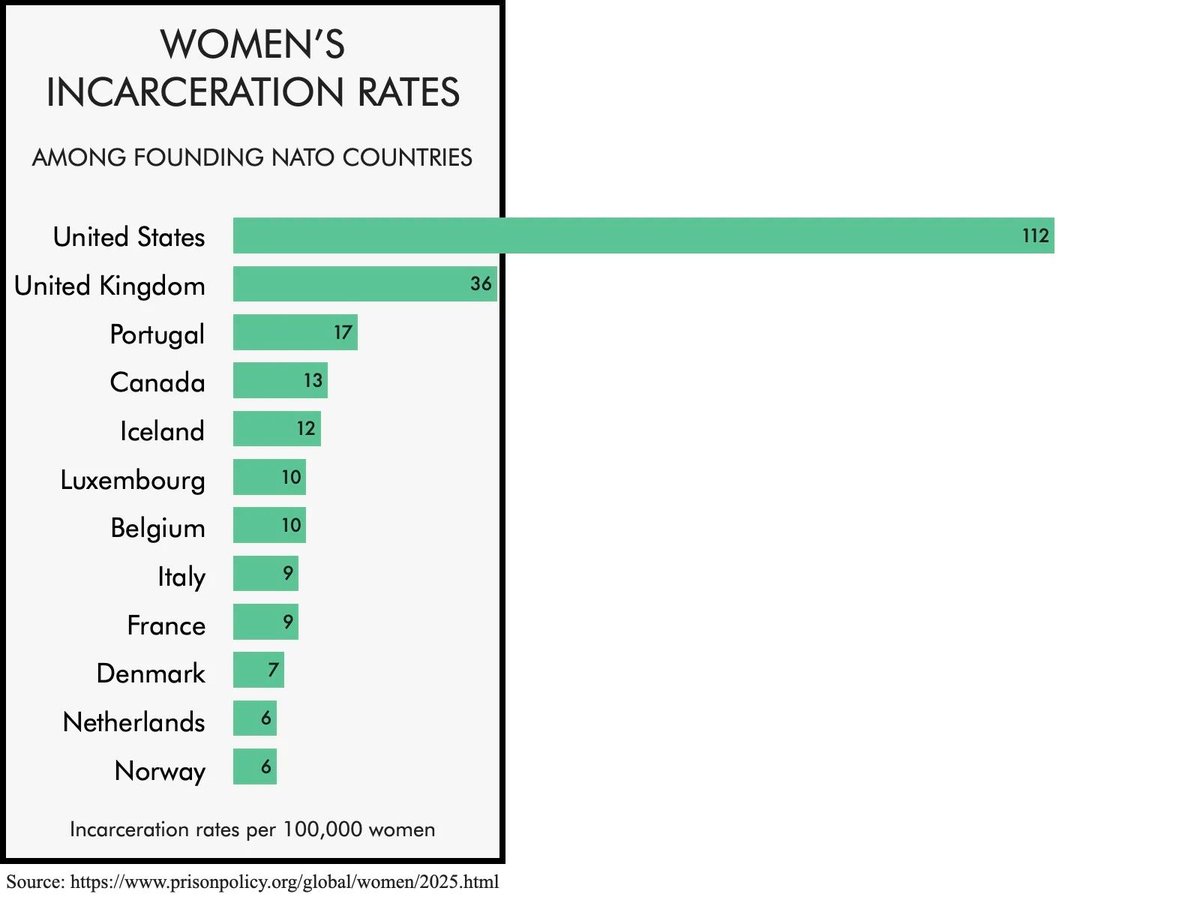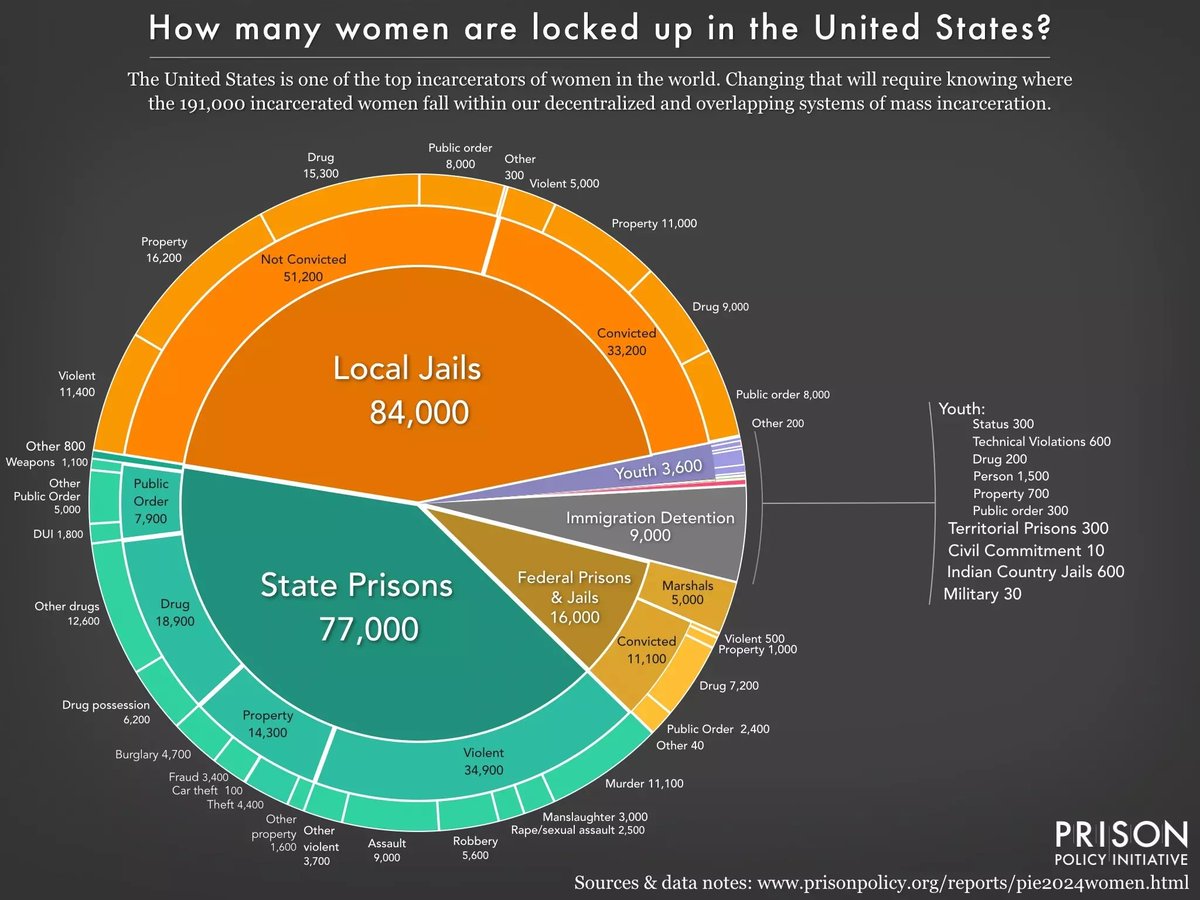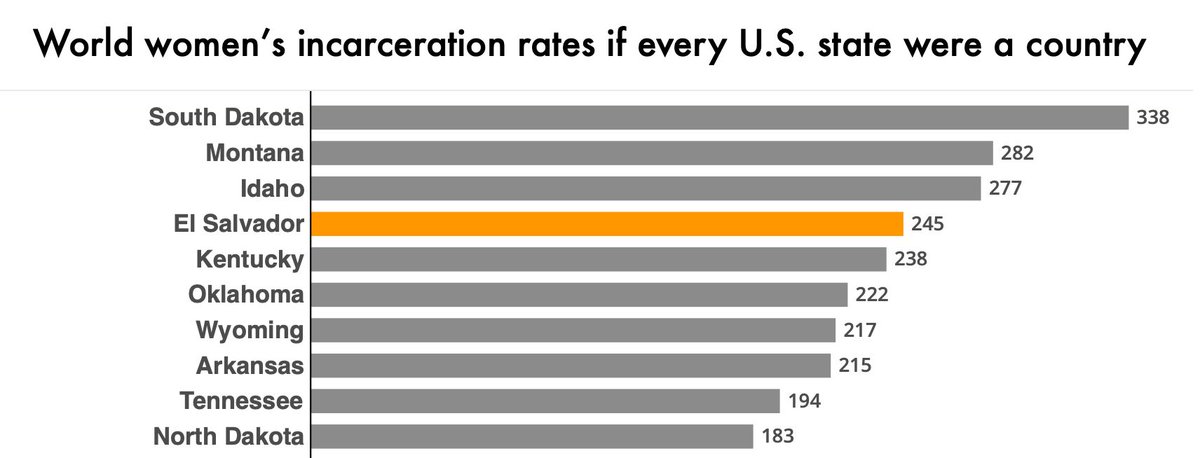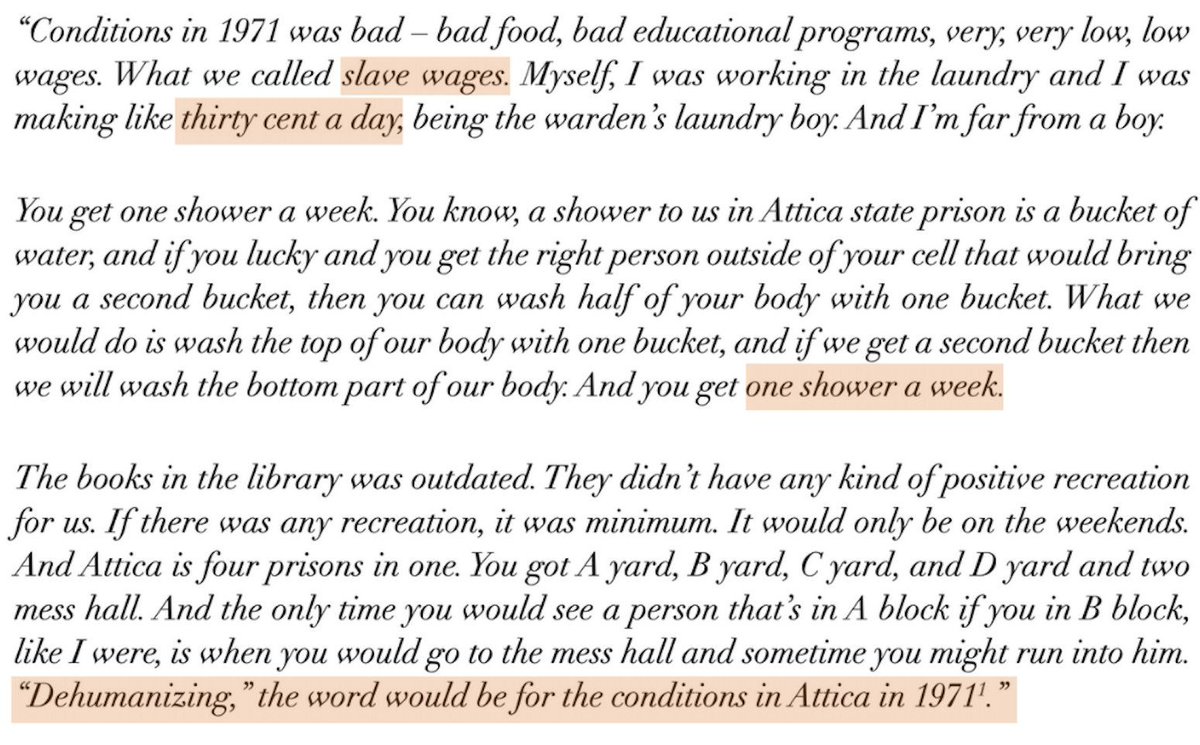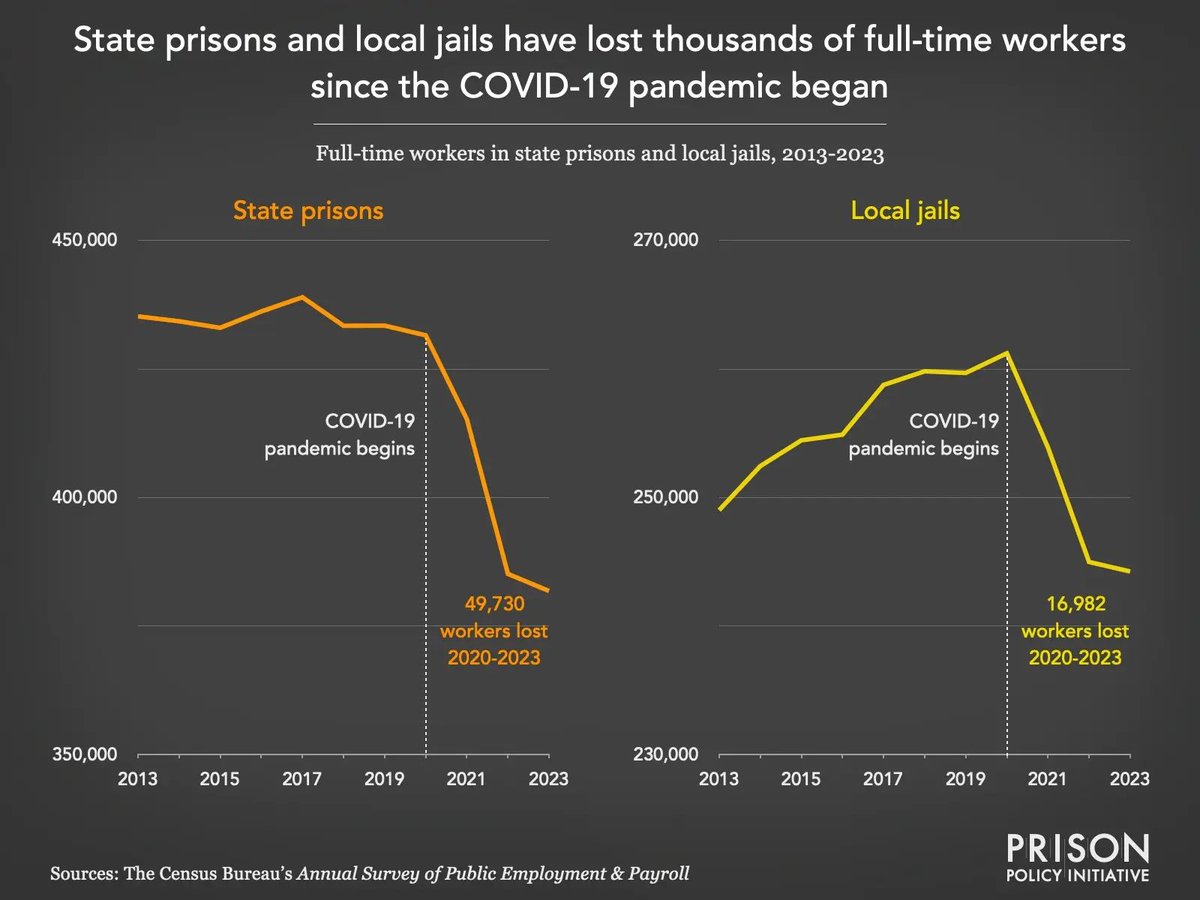"In Idaho prisons, more than two dozen women say guards prey on them with little fear of consequences — and those who speak up are often punished."
The U.S. is a leader in women's incarceration, and behind bars, women are anything but safe. 🧵
investigatewest.org/staff-sexual-a…
The U.S. is a leader in women's incarceration, and behind bars, women are anything but safe. 🧵
investigatewest.org/staff-sexual-a…
An investigation in Idaho by @investigatewest found that, since 2020, there have been dozens of allegations of staff sexually abusing women behind bars.
This number is alarming – and it's an undercount, since some women do not report abuse out of fear of retaliation.
This number is alarming – and it's an undercount, since some women do not report abuse out of fear of retaliation.

@investigatewest For the women who do report sexual abuse, they can be met with compounding trauma: Being thrown into solitary confinement for up to 23 hours a day.
This is not a system that values safety or justice.
investigatewest.org/in-idaho-women…
This is not a system that values safety or justice.
investigatewest.org/in-idaho-women…

@investigatewest Remember: Incarcerated people don't get to call 911 – instead, they have to rely on other IDOC employees reporting alleged abuse to law enforcement.
It's almost as if it's designed to leave people behind bars in a tangled web of distrust and zero accountability from COs.
It's almost as if it's designed to leave people behind bars in a tangled web of distrust and zero accountability from COs.
@investigatewest Even when abuse is reported to law enforcement, police have shown grave negligence. This InvestigateWest investigation found that "detectives have dismissed evidence, ignored leads and treated survivors as suspects."
investigatewest.org/case-closed-in…
investigatewest.org/case-closed-in…
@investigatewest But it's rare for accusations against guards to ever even come to light. Instead, prisons, like in Idaho, offer "resignation in lieu of discipline,” aka choosing to brush a serious issue under the rug.
investigatewest.org/in-idaho-women…
investigatewest.org/in-idaho-women…
@investigatewest Accusations then get sealed shut inside personnel files, and victims never receive justice
Of 37 women's prison workers accused of sexual abuse, InvestigateWest found that 18 resigned - meaning they could be hired at other facilities without the abuse showing up on their record
Of 37 women's prison workers accused of sexual abuse, InvestigateWest found that 18 resigned - meaning they could be hired at other facilities without the abuse showing up on their record
@investigatewest Even laws like the Prison Rape Elimination Act aren't capable of holding prisons accountable and are basically unenforceable: 

@investigatewest The carceral system is not a safe place for anyone – let alone vulnerable women who are left to the devices of COs with little to no accountability.
• • •
Missing some Tweet in this thread? You can try to
force a refresh


